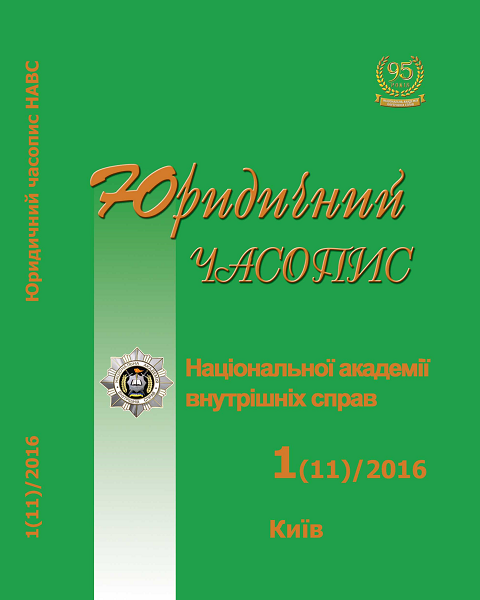Organizational-legal Fundamentals of the Emergent and Special Sessions of the USSR Boards of Courts
Keywords:
special courts, emergent sessions, State political management, special boards of courts, emergent order of trial
Abstract
Legal background of USSR advocacy activity in the 1920s is examined. Influence of social-economical state policy on forms of advocacy activity is investigated. During the NEP period boards of defenders were established at the Local Councils of People’s Courts, after the administrative reforms – at district courts. These were self-governed organizations with independent budgets; their activities were performed through private offices and legal consulting. NEP collapse and private sector narrowing caused the need to reform the advocacy sector as well. Questions of further advocacy activity performance were put for public discussion directed by the ruling party. It is resulted in cancellation of private practice and concentration on collective activity. In the context of advocacy transformation, «cleaning» of the defenders’ boards’ staff was initiated in order to fire persons considered to be a potential threat to Bolshevist’s regime. As a result, state enforced its control on the advocacy activity.Downloads
Download data is not yet available.
Abstract views: 78 PDF Downloads: 196
How to Cite
[1]
Gubar, S. 1. Organizational-legal Fundamentals of the Emergent and Special Sessions of the USSR Boards of Courts. Law Magazine of the National Academy of Internal Affairs. 11, 1 (1), 179-191.
Issue
Section
Theoretical and historical aspects of legal science
Copyright (c) 2017 Law Magazine of the National Academy of Internal Affairs

This work is licensed under a Creative Commons Attribution-NonCommercial-NoDerivatives 4.0 International License.
- Authors reserve the right to authorship of their own work and transfer to the magazine the right of the first publication of this work under the terms of the Creative Commons Attribution License, which allows other persons to freely distribute published work with mandatory reference to authors of the original work and the first publication of an article in this magazine.
- Authors have the right to enter into separate additional agreements on non-exclusive dissemination of the work in the form in which it was published in the journal (for example, to post an article in the institution's repository or to publish as part of a monograph), provided that the link to the first publication of the work in this journal is maintained.
- The journal's policy allows and encourages the posting of articles by authors on the Internet (for example, in electronic storehouses of institutions or on personal websites), both before the submission of this manuscript to the editorial office and during its editorial processing, as this contributes to the creation of a productive scientific discussion and positively affects the efficiency and dynamics of citing the published work.




